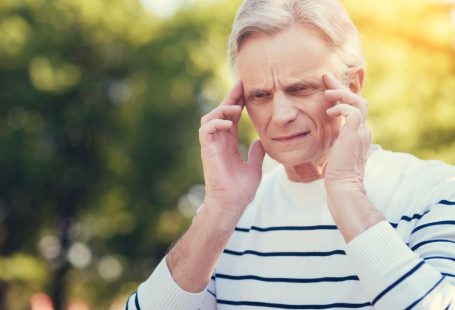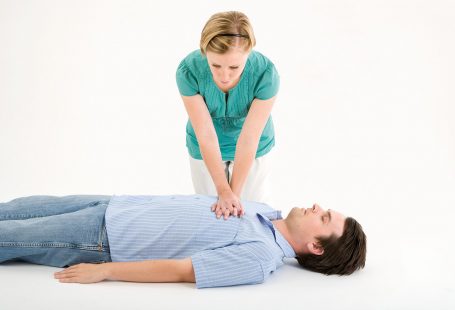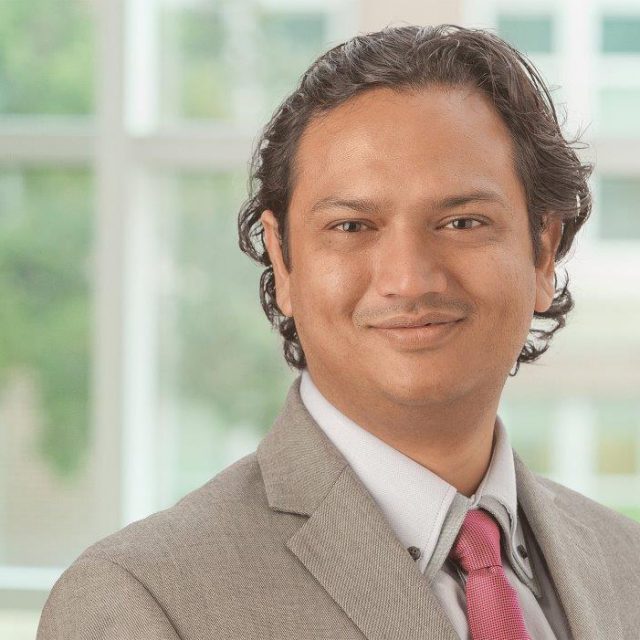
Dr. Danish: Hello and welcome to Movement Disorder podcast. I am Danish Bhatti. This week podcast will focus on Parkinson’s disease and to talk about it today on our show. We have the great Dr. John Bertoni himself.
Dr. Bertoni is professor of neurology and Director of Parkinson’s Disease Clinic at University of Nebraska Medical Center or UNMC. Dr. Bertoni has been in the forefront of all the advances in Parkinson’s disease in the last two decades. He has seen them all and done it all. He helped develop all the drugs we have on the market for Parkinson’s disease. His patients are his die hard fans and would not see anyone else even if they have to wait for two years for a follow up. I have a great personal fondness for him as I have been personally groomed by him. He has been my mentor in Parkinson’s disease. I still cannot pull off what he does with his patients.
Today we’ll talk to him about Parkinson’s disease over the decades. What we know about PD has remarkably grown over the last 20 years to a point where it’s bursting at the seams. We’ll go on a ride on the memory lane with John himself. It is my true pleasure and great honor to have him on the show. John please tell us a little bit about yourself and tell us one thing that you think no one would know about your career and movement disorders.
Dr. John Bertoni: Well Danish first of all thank you for inviting me. I’m very happy to see your career grow. I know we’ve worked together for many years and I first saw your CV when you were applying for residency. And I was impressed and pushed you to the front of the line as much as I could. And I’m very proud of what you’re doing and where you’re going.
I grew up in Michigan which is an outdoor kind of state. It’s surrounded by great lakes more lakes in it than Minnesota does. And we don’t have to put it on our license plate. I grew up and studied whatever I could. I knew all the sounds of the birds with my friend when I was about 7 or 8. We sang songs together and later he went to be an ENT surgeon and we learned all about the wildlife surrounding us.
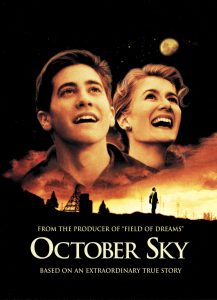
So I had an idyllic kind of upbringing I think. In 1957 Sputnik was rotating in orbit around the Earth launched when Russia launched by Russia and that was when everybody decided we need to catch up. And that’s how I got really pushed into science that I attended in high school took courses took tests and went to a national competition for physicists and mathematics and I went into a scientific course of study through high school and then I had a broder education in college and had an uncle that showed me what it was like to be a doctor. And I followed in his footsteps.
He actually was a boyhood friend of President Jimmy Carter in Georgia. The thing that really got me interested in neurology was in my medical school University of Michigan. They were doing a new course kind of like we’re doing now we’re getting the first and second year medical students involved in neuroscience. And when I saw patients being presented for the first time I just fell in love with neurology and the inspiring teachers that I had. Movement disorder specialists in particular brought me to where I am today. So it’s been a lot of fun and I can’t believe they’re paying me for this.
Dr. Danish: I know you’ve been doing Parkinson’s disease and really built up the Parkinson’s Disease. I’m a kid in Nebraska. We’re the last 20 years. Tell us how you got started with Parkinson’s disease and why you find it so fascinating that you did nothing else for the last 10-20 years.
Dr. John Bertoni: Well my wife wouldn’t say I did nothing else because she had a long list of things for me to do. And I took care of many other kinds of illnesses too. But no it has been my focus and it’s interesting Ken McGee who is an outstanding researcher and clinician was giving a lecture on Parkinson’s disease. And he said Don’t worry we have the cure. And I said well this is great. We have a neurological condition there’s actually a cure. He said levoDopa is now available. And I said well that’s great I’ll learn everything I can about this because I like treating things we know all about and that’s all we need to know. Well as it turns out that was just the beginning.
We’re replacing something that the body doesn’t have enough of because of the dopamine cell death that we run into in Parkinson’s. So from that point on I learned to understand that some of these claims are not always true but nevertheless I was fascinated by how do we make movements. How do we think about it. How do we know each other people each other as people. And it’s really through their movement and our movements it’s the expression on her face that we see it’s the sound of the voice that we hear. It’s how they write or type or use brain. So all of human communication all of literature science the arts is really about movement. I mean if we were just not communicating had no way to communicate what would there be. There would be no civilization. So it’s all about movement and the disorders of movement are as important as anything can be.
Dr. Danish: You know if you talked about back when you heard from Ken McGee on how we got to leave to above was the cure for Parkinson’s. The next biggest thing in moment is ours. And now you know there was a time when we thought stem cells was the next big thing and we have a cure. How do you see the changes in our approach or understanding of Parkinson’s disease over the years. how are we now compared to 10 or 20 years ago.
Dr. John Bertoni: Over the years there’s been times of optimism and times of pessimism. Like anything else it’s two things. Number one how do we manage the people and give them the highest quality of life for the longest possible duration. For those who actually now have Parkinson’s disease. the second thing is how do we prevent everyone else from getting it.
It’s like polio when I was a boy there was a great fear that we couldn’t even go out where there were people in public. We couldn’t go to swimming pools because of our polio epidemic again or just before a few years before Sputnik when the vaccines came out and the trial was we’re headed at University of Michigan and my uncle who had such a big influence on me was a pediatrician head of pediatrics at Michigan. And I saw that the vaccine would prevent people from getting polio.
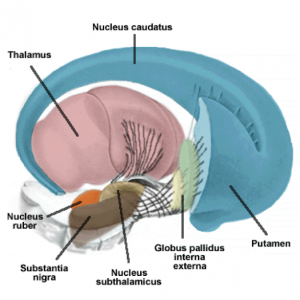
Someday we will have a way of preventing this disease or delaying it long enough so that it doesn’t really matter because we may not live that long. So really there’s two things. How do you manage somebody that has a disease? Secondly how do you eliminate the disease?. Research is now going to the front end and we’re trying to prevent or postpone we’re now using big data. But what are we going to do for the people that have Parkinson’s how do we help them. So those things will still remain.
Dr. Danish: So looking back now can you think of times where something seemed so fashionable such a rage but now seems very foolish when we look back at it in Parkinson’s care.
Dr. John Bertoni: Yes an article in The New England Journal of Medicine that Madrazo was the first author where the idea was you take someone’s own tissue from their adrenal gland where cells make dopamine. And transplant them into the patient’s own caudate nucleus. And he had a series of patients that were not controlled which is an important thing. And the success was amazing. I heard him talk. I went up afterwards and talked with him and was very impressed with this man. And I know Abe Lieberman was one of his fans he believed in this he was I think the reviewer and I’ve spoken with a many many times actually traveled with him.
There was an example of something that became really hot and fashionable but they had no control group no control group. And in retrospect so many things like as you look back and you find out if you really look carefully there’s something dangerous about it or this could be a placebo effect. And we have to consider that. So how can you have a placebo effect for this. How can you test for that. And so sham operations became one of the things that we use to find out about it. Patient doesn’t know. People read from a script in the oh are they make it sound as if they may even put a burr hole in it nothing else happens.
So these things are ways you can get around that. So we had a patient in Philadelphia where I was Jefferson that he had the procedure in the press hounded me. There were famous. We did it first. And I said why don’t we wait and see how the patient does first. And they thought I was just crazy. And it turned out the patient didn’t do well postoperatively and in retrospect he was not a good candidate for he was kind of too infirm already, too sick. So that’s already I was cautious at that point.
Dr. Danish: There was a time when I think the dopamine agonist came out new to the market, late 80s early 90s and then there were initial studies showing that dyskinesia was less with them for example. And then some experts really became a big fan of it and there was a big dopamine craze as the first line of therapy for many years and there was almost like a levodopa hate for a while. Well you were part of what you thought back then.
Dr. John Bertoni: Well actually as you were mentioning earlier I was involved actually when Ron Pfeiffer was here. He was actually the one that began doing these here in Omaha studies on ropinirole and Pramipexole and I took over those when Ron left. Ron was a giant actually. He was the one that really established Parkinson’s disease in Nebraska and he’s gone on to be an editor and has done fine work throughout his career.
I was cautious then. I had been around the block enough to know that let’s wait and see how things come and go. You hear celestially is a wonderful thing. It’s going to Burt Meyer who in Vienna was one of the first people to find agents that were good for Parkinson’s and actually things like Apomorphine and some of the dopamine agonists were tried first by him. There there’s an argument about using levodopa first but his son actually came and I had dinner with his son who is a big believer in selegiline and it was supposed to be something to prevent disease entirely. And there was a thought that rescheduling would be easily proven to be something that would postpone or slow down the disease. Yes. Slow it down. And again these are propositions and hypotheses are made to be proven or disproven. So I’ve learned the scientific method is what our best defense.
Dr. Danish:Now talking about courage. Why do so many of us think that you don’t want to give any medications to your patients.
Dr. John Bertoni: I find that individuals have that disease and they are not like everybody else. You know you see a patient with Parkinson’s. Some don’t have tremors. And you say Well where is your tremor. I’ve had patients with very severe tremors and then 10-15 years later I’m looking through my notes. You don’t have any tremor. And the person will say well I used to have a tremor but it’s kind of gone away. So these things really really change over time. And I think it’s important to know the patient, encourage the patient to do everything the patient can do, take charge of the owners. I then propose then, once they get fit once they get exercising then we’ll give them medication. I use it as if I’m just going to give them pills and they want to take care of themselves. I think that’s bad medicine. So I encourage them and I do use it. And I find that if I keep on giving them more medications for every time they’re having a life crisis and they’re trembling more I’m not doing them a good service.
I want to make its way. And I remember our discussions and arguments about this and sometimes you know let them get over the loss of a loved one or they’re going through a lot of stress that they’re sick in other ways. And you know I found it works better and when they need it. Sure we give them all they need.
Dr. Danish: What is the most exciting thing about Parkinson’s disease in the recent years?
Dr. John Bertoni: Well let’s see I could answer that in the positive or the negative. I think the fact that we have more information available now that the Parkinson’s study group and all the co-operative studies that are now gathering a lot of data. We’re learning more about the risk factors. And so I think number one is we have collectively a lot of more information than we used to for risk factors because I think prevention is what you do to treat diseases. And we tend to get end stage. The good news is we have more information hopefully we can start preventing things. But the bad news is that’s going to take decades because it’s such a slow process.
Dr. Danish: What would be some helpful tips and tricks you will have for the residents for managing or diagnosing Parkinson’s disease?
Dr. John Bertoni: I think the first one would be establish a personal relationship with your patient. It’s not just somebody you have your back to and you’re typing and the electronic medical record from those days hopefully will be gone and will be able to interact we’ll have a scribe so that you can do your job and your job is not to type 150 words a minute. You need to make a connection with the patient. Find out why they’re here. Because if they’re here just because they want you to tell them they don’t have Parkinson’s disease then you can do all you want but you’re going to disappoint them. So and then find out what makes them tick. What do they care about. What is there to live for. I think once you establish a connection I believe this firmly. They don’t care how much you know unless they know how much you care. And if you make a connection with them they’re going to be good they’re going to listen to you more. They’ll do the right things and hopefully you know the right thing.
Dr. Danish: In the end John,I want to ask you I want to put you on the spot here and ask you if I say if I say Tell me about the most interesting patient you had with Parkinson’s disease which patient comes to your mind.
Dr. John Bertoni: When we do deep brain stimulation and such procedures Jim Teryn in Ann Arbor Michigan I was involved in many of his cases as I can. He had an apartment in Paris and was studying with the greats in Paris as well. That was when the lesions were destructive and I remember helping him out and I was the one that would touch the patient’s hand and you could hear the sound of fibers in the thalamus. I’ve been fortunate to see him and that’s when we had tubes and not transistors. I mean I’m telling you you turned it on and you had to wait a while before it warmed up. So I’ve had you know blessed to be in a time of great change. And now we have a whole lot more we can offer people.
Dr. Danish: This was very exciting thank you so much for being with us on today’s show. There’s so much more to talk about Parkinson’s disease and I know we have not even scratched the surface yet. I hope we can have you back on this show soon for another great episode. Thank you.
Dr. John Bertoni: Glad to help. Thank you.
Dr. Danish: Thank you. I hope you’re as thrilled as I am about today’s episode. Your feedback since suggestions are highly appreciated. So write to us at ejazlearning@gmail.com. and follow me on Twitter at Danishbhatti_MD. Hope to see you next time. Ciao ciao.
